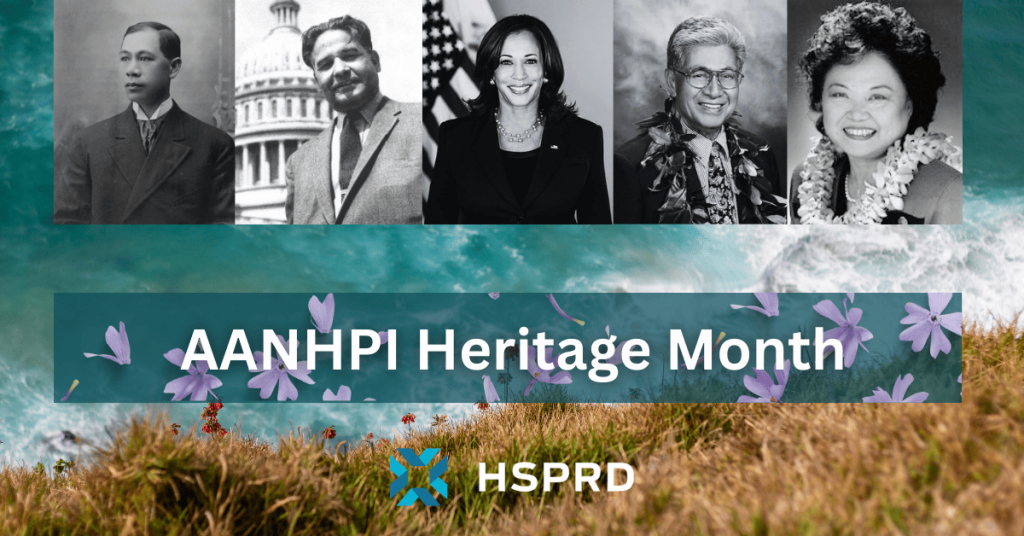
May marks AANHPI Heritage Month, an annual celebration that recognizes the history, culture, and achievements of individuals and groups of Asian American, Native Hawaiian, and Pacific Islander descent in the United States. Asian Americans, Native Hawaiians, and Pacific Islanders (AANHPI) have played fundamental roles in shaping our nation, while also facing continued discrimination and violence throughout U.S. history and particularly during the COVID-19 pandemic.
In honor of AANHPI Heritage Month, HSPRD pays tribute to five Asian American, Native Hawaiian, and Pacific Islander attorneys whose courage and determination paved the way for future generation. These trailblazers overcame enormous obstacles to pursue their careers, to become inspiring changemakers.
Hong Yen Chang –First Chinese immigrant to practice law in the United States
Though he graduated from Columbia Law School with honors in 1886, Hong Yen Chang faced enormous challenges gaining admission to the bar. The Chinese Exclusion Act prohibited Chang from acquiring U.S. citizenship and, as a result, his application to the New York Bar was initially denied. He was eventually naturalized and admitted to the New York bar in 1888. The New York Times acknowledged his admission to the bar and noted that he was the only Chinese immigrant admitted to practice law in the country.
Dalip Singh Saund – First person of Asian descent elected to Congress
Saund was born in India in 1899 and immigrated to the United States in 1920. He was an activist and participated in the movement for immigrants of South Asian descent to become naturalized U.S. citizens, which eventually persuaded Congress to pass the Luce-Celler Act of 1946, allowing more South East Asians to immigrate to the U.S. each year and become naturalized U.S. citizens. After Saund became a naturalized U.S. citizen in 1949, he ran for election as a local judge and won. In 1955, he ran for a seat in the House of Representatives and became the first person of Asian descent to be elected to Congress.
Daniel Kahikina Akaka – First Senator of Native Hawaiian ancestry elected to Congress
Akaka was well known for his humble and charismatic personality. He served in the U.S. Army Corps of Engineers during WWII. Following the war, Akaka returned to school enrolling in the University of Hawaii, where he received his bachelor’s and master’s degrees. A strong believer in the power of education, he made a career as a teacher and principal in the State of Hawaii Department of Education. First elected to the U.S. House in 1976, Congressman Akaka was appointed to the Senate to succeed the deceased Spark Matsunaga. Akaka would later be re-elected to three full terms. Akaka was praised for his lifelong work in support of education, veterans, sustainability, environmental matters and as a leader on Native Hawaiian issues. In 1993, after three previous unsuccessful attempts, he helped pass a resolution for the federal government to apologize to Native Hawaiians for its part in the 1893 overthrow of the Kingdom of Hawai‘i.
Patsy Mink – First woman of color and first Asian American woman elected to Congress
Patsy Mink was a third generation Japanese American who grew up in Hawaii. She graduated from the University of Chicago Law School in 1948 but was ineligible to practice in Hawaii because the law had forced her to take residency in Pennsylvania, her husband’s state. She successfully challenged law and passed the Hawaii bar, becoming the first woman admitted to practice law in the state. Unable to get a job as a lawyer because of her interracial marriage and biracial child, she started her own practice in 1953. In 1964, she became the first woman of color and the first Asian American woman elected to Congress. In addition to writing bills like Title IX, the Early Childhood Education Act, the Women’s Educational Equity Act, Mink fought for gender and racial equality, affordable childcare, and bilingual education. Mink was the first Asian-American to run in the presidential election, in 1972.
Kamala Harris – First female and person of South Asian descent elected to Vice President
Kamala Harris made history when she was sworn in as the 49th U.S. vice president on January 20, 2021, becoming the first African American woman, the first Indian American, and the highest-ranking female official in U.S. history to occupy the office. Harris is the daughter of immigrant parents, born to an India mother and Jamaican father. In 2010, Harris was elected as the first African American and first woman to serve as California’s Attorney General. In 2016, she was elected as a Senator for California, becoming only the second African American woman to ever be elected to the Senate in U.S. history.
